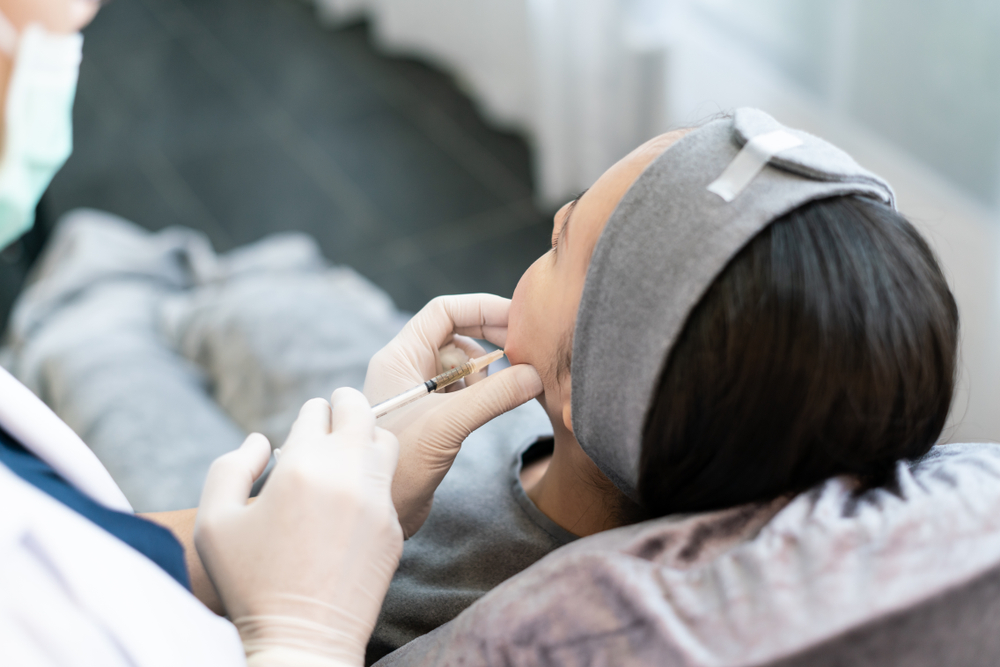Soft-tissue or dermal fillers are by far the most common minimally invasive cosmetic procedure in the U.S. In 2017, there were almost 2.7 million such procedures performed according to the American Society of Plastic Surgeons, an increase of 819% compared to the year 2000. Of those, 2.1 million involved Hyaluronic acid (Juvederm Ultra®, Juvederm Ultra Plus®, Perlane®, Restylane®, Belotero®). Other manufacturers of fillers include Sculptra, Radiesse, Artefill, Bellafill and Juvederm Voluma. While generally these treatments are safe, they can result in serious complications when not performed properly.
Several studies illustrate the risks. The FDA’s Manufacturer and User Facility Device Experience (MAUDE) database showed more than 5,000 reports of problems related to fillers from January 2007 through July 2017. The most common ones were nodule (bump) formation, infection, inflammation, allergic complications, and vascular complications. While these were often temporary and not life threatening, other problems were more serious including strokes or stroke-like events which can happen when an injection hits a blood vessel and blocks it. In addition, blindness can occur when an injection near the eye blocks a blood vessel. Loss of sight can also result from injections into the forehead, nose and cheeks.
The skill of the practitioner giving the treatment is important because the most serious complications arise when fillers are injected into a blood vessel or injected too tightly into a tissue. These situations frequently result in malpractice and other negligence claims. Dermal filler treatments can be provided by medical specialists, including plastic surgeons, dermatologists, and ophthalmologists. However, they also may be given by mid-level providers such as physician assistants, nurses, and aestheticians. Laws regarding such practices vary from state to state and in some states, there may be little to no certification and training required for these individuals.
In states where the procedures may not be considered medical treatment and therefore, do not fall under malpractice laws, a patient may still be able to sue under other theories such as negligence, battery, or deceptive advertising. However, regardless of the theory of liability, expert witnesses are essential to proving or defending claims for injury involving dermal fillers. Such experts may include board-certified specialists in Cosmetic or Aesthetic Dermatology or Cosmetic or Aesthetic Plastic Surgery both of whom focus on aesthetic procedures including dermal fillers, chemical peels, energy-directed skin treatments (radiofrequency, ultrasound), body contouring, laser skin rejuvenation, laser hair removal, and other treatments. Ophthalmologists also may be consulted as they commonly perform cosmetic procedures including using dermal fillers and Botox®. All of these experts can testify regarding the duty of care, the skill level of the practitioner, causation, and damages. If you are considering or facing a lawsuit related to dermal fillers, contact Elite Medical Experts for guidance on finding the right expert witness for your case. We connect you to nationally recognized university-based expert witnesses with specific expertise in performing injectable filler treatments.

